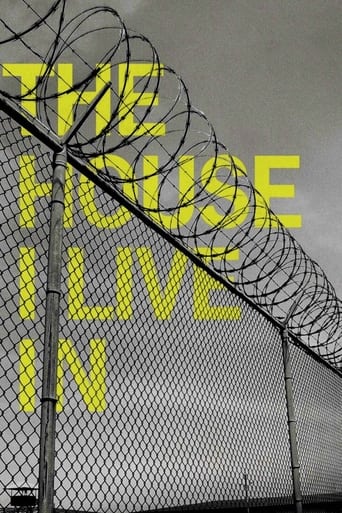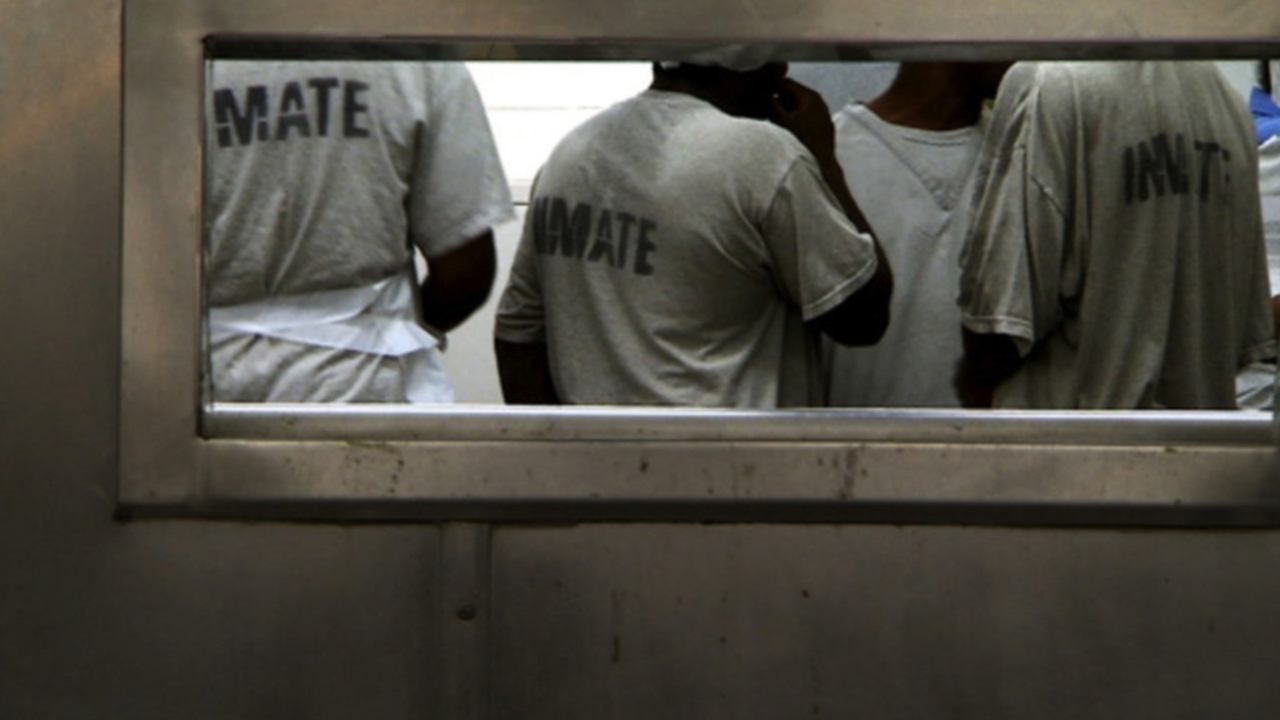davideo-2
STAR RATING: ***** Saturday Night **** Friday Night *** Friday Morning ** Sunday Night * Monday Morning Since President Nixon announced a crackdown in the early 1970s, the 'War on Drugs' has been probably the main source of arrests in the United States, caused families across the country to fragment and fall apart, and made America the country with the highest jail population in the developed world and beyond. This hard line stance, that serves to illuminate a particular section of society and make them scapegoats, is designed to act as a moral standpoint that appears to be acted on, but is actually doing more harm than good, creating criminals out of otherwise law-abiding, non violent people, and targeting America's black population more than any other. Eugene Jarecki delves headfirst into the front line of those affected by this war, from the low level dealers and their families, academics, those involved in treatment, but more startlingly even those on the other side of the fence, such as a host of disillusioned lawmen, judges and penal workers, whose opinions have also shifted to the more liberal way of thinking.Independent film is easily the best way to express an opinion artistically that mainstream cinema would not comfortably touch with a bargepole. While usually in America it comes from expressing an opinion that others would consider unpatriotic, here Eugene Jarecki has created an in-depth, thorough assault on a moral standpoint that has been the word of law for several decades now, and that other countries soon followed suit with, such as Britain with the Misuse of Drugs Act. The most high profile contribution comes from David Simon, the creator of highly successful cop show The Wire, and it's most startling that we hear from a series of cops who question the validity of what they're doing.It plays almost in the manner of a prosecution barrister acting against the War on drugs in court. We hear evidence that it has racist origins from the last century, that play into its racist nature today, which disproportionately targets black communities more than any other, that judges are not free to use their own discretion and judgement when sentencing, but are instead saddled with guidelines that they must obey without fail, that unscrupulous cops can use it to boost their arrest rate and even steal property through civil asset seizure, and that it's all just basically an excuse to do away with those who those in power don't see as having any use to society, beginning with the black community in the 80s with crack cocaine, before progressing to white trailer parks in more recent times with crystal meth.Jarecki has studied the evidence, and knows which cards he's chosen, and what has to be admired is the sheer thoroughness and depth with which he's presented his case. If people who are meant to be on the front line can have their opinions swayed after years of bitter experience, surely a casual viewer who maybe has an unsympathetic view to drug addicts can. The only ones who surely never will (in public, anyway) are the self serving, hollow politicians who would never risk their careers by saying what they truly think. ****
Sourik Beltran
The House I Live In takes the complex issue of the failed war on drugs and breaks it down to a level that is both digestible and striking nonetheless. The film provides substantial historical evidence to make a powerful argument against the American war on drugs. The House I Live In exposes the many flaws of current anti-drug policies and strategies from a multitude of perspectives, drawing from historians and academics to front- of-the-line law enforcement and correctional officers alike. The film brilliantly ties these perspectives in a way that can effectively inspire viewers from all backgrounds to take a stand in confronting this largely unrecognized national issue.The film provides an impressively broad set of data and evidence that cohesively screams one message—the war on drugs is a failure to the American public. As the first film focused solely on the subject, The House I Live In is undoubtedly one of the decade's most important films.
winst
If you've been a student of most public schools you've learned about slavery.There's a lyric I remember that says "I hate it when they tell us how far we came to be - as if our peoples' history started with slavery." Well, the history of subjugating minorities has not ENDED with slavery either, and retrospective condemnation of racism serves the purpose to perpetuate the racism embedded and invested in our country today. The most important mistake is to confuse failure with success in regards to the apparent shortcomings of our establishment. I again use the example of public schools because the recent documentary "Waiting for Superman" did a fantastic job in addressing the "failures" of schools to educate children. It takes a book like James Lowen's Lies My Teacher Told Me to recognize the grand success of our school's indoctrination process: to teach obedience, not intelligence. It takes a documentary like The House I Live In to vocalize the airtight success of our administration in conducting the 41 years' drug war. Logic should compute. If more money has been spent (a trillion dollars since the '70s,) the prison population has skyrocketed (2.4 million people incarcerated) and no progress has been made in keeping drugs off the streets, (similarly with our schools, with reform after reform we continue to perform beneath the feet of most industrialized countries,) you have to start looking at things a little differently. It is hard to see the exit of the maze when walking within its walls. This documentary helps to see things from the outside. This film brings to light a lot of revealing facts that have been swept under the rug, like how opium wasn't an issue until Chinese started climbing the success latter in San Francisco, or how the police in border states can directly siphon the money from drug busts to reward their outfit. Mostly, it encourages a comparison between the way minorities have been apprehended with drug abuse and the apprehension of whites (who hold equal if not higher drug abuse statistics but make up a minority of the prison population.) And it encourages comparison between past, mass scale subjugation (often with eventual extermination) and, to quote the film, the slow-motion holocaust happening in our own country. It recognizes the drug epidemic as an economic issue and a medical issue, not a racial issue. It recognizes the drug WAR as the glaring rash of vibrant racism, and the brutal front of a class war in a society where profits come first, human beings second. More to this point, it eludes to the country's prime motivation, net gain and increased GDP, and the plethora of companies from Sprint Mobile to GM to privatized prisons such as CCA, all of whom depend on the drug war to maintain stock value. To quote ousted investigative journalist and ex-LAPD narcotics officer Michael Ruppert, "A snake eating its own tail is not nutritious." Though it is outside the periphery of the film's focus and beyond the pale even for a documentary of this substance, the issue of international drug trafficking, and facilitation it has received, at times, from both the financial sector and intelligence agency of our country, was never brought to light in this film. Despite whether this topic is to be written off as conspiracy theory or submitted for further analysis, a film that introduces our economy's dependence on drug dependence and the targeting of minorities in an everlasting drug war, has a duty to at least address the controversy. I suggest raising the question on discussion boards and at Q&As, as my screening was lucky enough to have. We live in a country that is infested with racism, now as much as any other time. Our economy depends on it, and the drug war has fertilized it. It is time to end it.
zippyflynn2
What's really fueling this law and order hysteria and the draconian prison sentences for relatively minor, innocuous and even non-existent "crimes" is the extraordinarily profitable Prison for Profit system. What's interesting and extremely frightening is most Americans are oblivious to it. Combine this with a large number of the public being largely uneducated and on a continual sadistic hunt for scapegoats, those who profiteer on the modern day slave trade have a willing public as unwitting accomplices.It's interesting the director, Eugene Jarecki, also did "Why We Fight", one of the best documentaries to expose the crimes being committed by the blood money Military Industrial Complex. The public is also largely oblivious to that evil profiteering monster and also happily supports it to the point it thinks murdering and dying for it is a good thing. Jarecki makes some of the most important and enlightening documentaries of today. It's an alarming shame and tragedy that the predominately ignorant and not very mentally healthy general public aren't watching them, let alone able to comprehend how it hurts everyone except the bank accounts of sociopathic "business" men and women.Perhaps the common denominator is the same fuel that's driving half of the present day voters in the Presidential election: hatred and the eternal search for scapegoats. It would make an excellent documentary to tie these core driving forces together, a task I think Mr. Jarecki is capable of doing well. It probably won't make much of an impact beyond preaching to the choir but then again none of his other fine offerings have fared much better and those are still greatly appreciated by thoughtful and humane audiences.



 AD
AD



